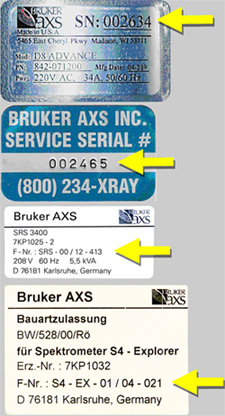
Vacuum systems, compressed gases, steam equipment.The following hazards may be found in these laboratories: Violation of the facility rules and regulations may result in withdrawal of access and use of the facility.Do not change the alignment of any instruments beyond what you have been told by facility manager or director.Users should not perform a task or use a piece of equipment for which you have not received proper training or are not authorized to use.Issues with the facilities or instruments must be reported to the facility manager.To cancel a reservation, the user must do so at least 48 hours in advance to avoid incurring a user charge.All users must have authorization from the facility manager or director before utilizing instruments in the BS元.Note: External users will need to submit a request and cover the usage costs via a purchase order mechanism. Finial request for access must be approved by the Director of the BS元.įees are charged to recover maintenance, supply, waste and personnel costs related to the facility. Users need to demonstrate knowledge of BS元 lab protocols to the facility manager before using the facility.
#Bruker apex duo registration#
The BS元 Research Facility is available to Temple University researchers (including faculty and staff) upon completing the User Registration Form and acquiring all university IBC approvals. All rooms have safety HVAC monitoring and alarm control.Lockers for personnel to store personal items.Each of the 3 BS元 labs contains two 6ft Class II A2 Bio-Safety Cabinets.Access to the facility is limited using a secured centralized card-swipe system. The BS元 facility consists of three individual BS元 labs that share a common prep room. The certified Biological Safety Labs Level 3 (BS元) bio-containment research facility, located in the Bio-Life Sciences Building, is a high-containment facility that supports sponsored researchers using various pathogenic materials. Owl’s Nest, a high-performance computing, hosts 6,464 CPU cores, providing about 57 million service units (CPU core hours) per year. The college’s Research and Instructional Support Facility offers machining, including a computer numerical-control milling machine, providing the ability to design and manufacture an array of tools, prototypes and products essential for advanced research. Instrumentation includes three X-ray diffractometers, a transmission electron microscope, and an accurate-mass quadrupole time-of-flight mass spectrometer, which provides superior sensitivity and data quality for profiling, identifying, characterizing and quantifying compounds. To increase its research potential, CST houses common instrumentation facilities for use by faculty and students at the college and across Temple University. One of the largest facilities of its kind on the East Coast, SERC is home to teaching and research labs, sophisticated instrumentation and collaborative spaces to facilitate innovation and discovery.

The College of Science and Technology (CST) is home to the advanced Science Education and Research Center (SERC). Advanced instrumentation and spaces that support innovation.


 0 kommentar(er)
0 kommentar(er)
